To what extent can we define knowledge?

This year, the College re-introduced a Theory of Knowledge (TOK) camp to our International Baccalaureate Diploma Programme (IBDP). Not only was it an outstanding way to finish off what has been a great year for the year 1 IBDP cohort, but it was a celebration of the learning journeys that the IB boys have been on too. Located at Tirohanga Camp near Outram, the two-day camp was led by Melissa Bell and supported by Chris Knopp and Brendan Porter. Melissa and Chris are our outstanding TOK teachers that we have at the College. The IB TOK camp enabled the students to dive deeper into some of the areas of knowledge of the TOK that they had started earlier in the year. The IB cohort also had the chance to prepare for and conduct a practice TOK presentation which is a significant component of the assessment of the IBDP. They were also allocated some time to conduct initial reflections on and explore the assessment criteria for the World Studies Extended Essay (WSEE).
The TOK course is fundamentally about critical thinking and inquiry into the process of knowing rather than about learning a specific body of knowledge. The TOK course examines the nature of knowledge and how we know what we claim to know. It does this by encouraging students to analyse knowledge claims and explore questions about the construction of knowledge. The role of TOK is to emphasise connections between areas of shared knowledge and link them to personal knowledge in such a way that an individual becomes more aware of their own perspectives and how they might differ from others. The type of thinking that arises out of studying TOK, is the glue to which binds all aspects of the IB Diploma Programme.
The WSEE, offers the opportunity for IB students to investigate a topic of special interest, in the form of a 4,000-word piece of independent research. Students write about their chosen topic using two IBDP subject lenses; which leads to a major piece of formally presented, structured writing, in which ideas and findings are communicated in a reasoned and coherent manner, appropriate to the subjects chosen. It is intended to promote high-level research and writing skills, intellectual discovery and creativity.
One of the major benefits of the IB diploma programme is its interconnectedness and the focus on interdisciplinarity across courses and subjects taught. All IBDP students make connections; across subjects and courses taught, and with their learning and real-life contexts. Therefore they are developing a significant depth to their own learning.
If you have any further questions about the IBDP at the College, you are encouraged to contact Brendan Porter (brendan.porter@mcglashan.school.nz).
Places are still available for students to join the cohort of IBDP students starting the programme as year 12 students in 2020.



 Open Event Registration - Interested in enrolling?
Open Event Registration - Interested in enrolling? Employment opportunities - click if you're interested in working at McGlashan.
Employment opportunities - click if you're interested in working at McGlashan.